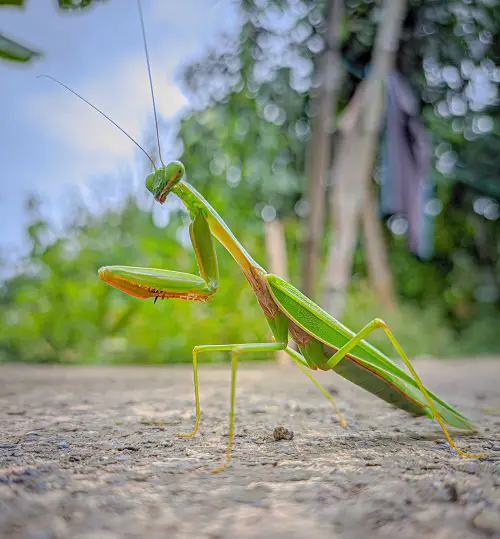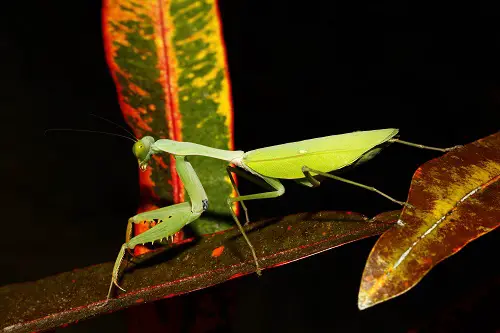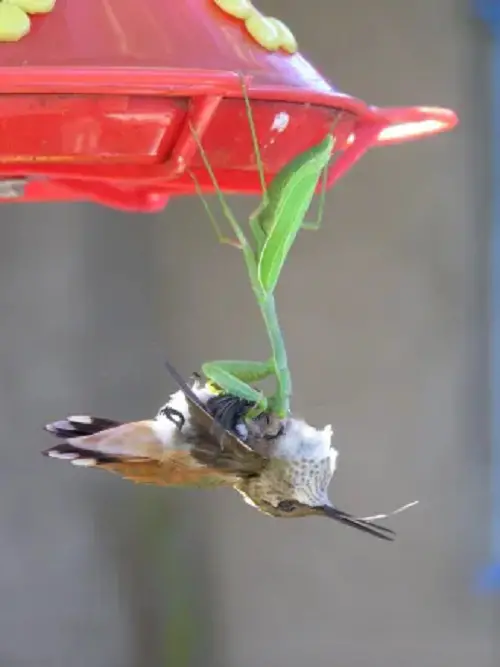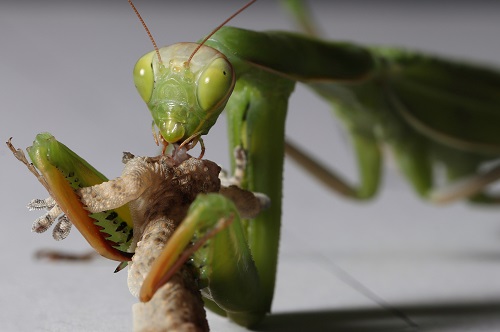Do you want to know about interesting Praying Mantis Facts? Here’s a complete guide that will give you all the details!
Praying mantises are fascinating insects that have intrigued humans for centuries. These predatory insects are known for their unusual body shape and hunting abilities and are found all over the world. Read on to learn about Praying Mantis Facts and What Do Praying Mantis Eat.
What is Praying Mantis?
These insects are characterized by their elongated bodies, triangular heads, and prominent front legs, which are modified for catching and grasping prey. Praying mantises come in a range of colors and sizes, with some species growing up to 6-8 inches long. They have two large compound eyes, which are used for detecting movement, and three simple eyes, which detect light and dark.
Praying mantises are also known for their unique hunting technique, in which they remain completely still until prey comes within striking distance. They then pounce on their prey with lightning-fast speed and use their sharp front legs to catch and hold it.
Learn about some Useful Garden Insects
Do Praying Mantis Bite?
While praying mantises are capable of biting humans, they are not considered a serious threat. Their bites are usually only painful and may cause mild swelling, but they are not toxic or dangerous.
It is important to handle praying mantises with care and respect, as they are delicate creatures that can easily be injured.
How Does Praying Mantis Bite Feel?
Praying mantises are known for their sharp and powerful forelegs, which they use to grasp and hold onto their prey. When a praying mantis bites, it can be quite painful, and it even draws blood.
Their bite is similar to that of a small needle, with a sharp and sudden pain. However, praying mantises typically only bite humans if they feel threatened or provoked, and their bite is not venomous. While a praying mantis bite may not be pleasant, it is unlikely to cause any serious harm to humans.
What Do Praying Mantis Eat?
Praying mantises are carnivorous insects that feed on a variety of prey, including insects, spiders, and other small animals. Their diet varies depending on their size and location, but they are known to eat moths, flies, crickets, grasshoppers, and even small lizards and rodents.
They have been known to eat their own species, as well as other insects that are beneficial to humans, such as bees and butterflies.
Find What Does it Mean When You See a Praying Mantis
Praying Mantis Facts
Here are some interesting and unique facts about praying mantises:
1. Over 2400 Species
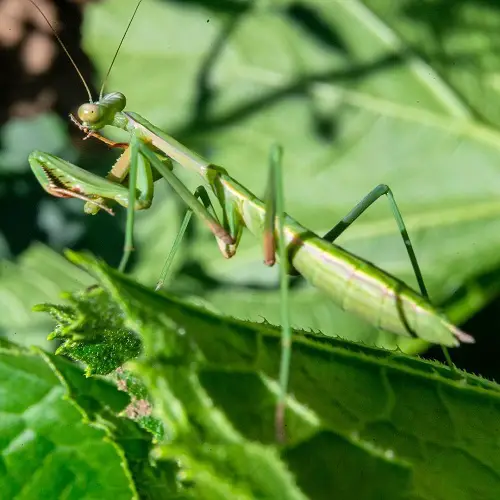
There are over 2,400 species of praying mantises worldwide, with the largest found in Central and South America.
2. Belongs to Order Mantodea
Praying mantises belong to the order Mantodea, which comes from the Greek word for “prophet” or “soothsayer.”
3. Interesting Name
They are named “praying” because of the way their front legs are held together, as if in prayer.
4. Sharp Spines
The legs of a praying mantis are equipped with sharp spines that are used to grasp and hold onto prey.
5. Excellent Eyesight
Praying mantis have excellent eyesight and can rotate their heads up to 180 degrees to scan their surroundings.
6. Ambush Predators

They are ambush predators, waiting patiently for their prey to come close before striking with lightning-fast speed.
7. Carnivorous
Praying mantises are carnivorous and will eat anything they can catch, including other insects, spiders, and even small lizards and birds.
8. Females are Larger
Females are typically larger than males and may even cannibalize their mates after mating.
9. Can Live in Captivity
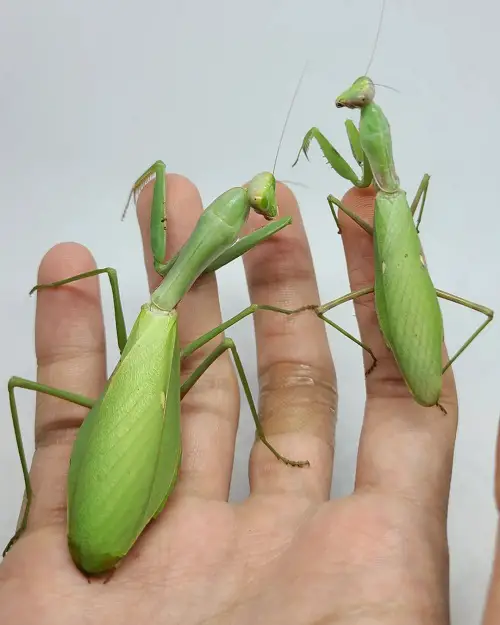
Some species of praying mantises have been known to live for up to a year in captivity.
10. Symbols of Good Luck
In some cultures, praying mantises are considered to be symbols of good luck or even supernatural powers.
11. Popular Pets
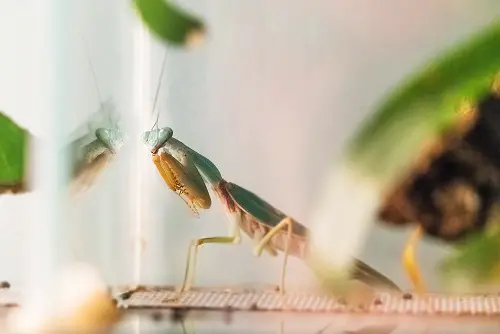
Praying mantises are also popular pets, with some species being kept in terrariums by hobbyists.
12. Special Membrane
Praying mantises have a special membrane that covers their eyes, which helps to protect them from damage during fights with prey.
13. Able to Change Color
They can change their color to blend in with their surroundings, which helps them to remain hidden from predators.
14. Can Catch and Eat Hummingbirds
Praying mantises can catch and eat hummingbirds, which is quite an impressive feat considering the size difference between the two!
15. They Have Wings!
Praying mantises have two pairs of wings. The front pair, known as the tegmina, is large and leathery and used for flight. The back pair is much smaller and used for balance and steering.
Both pairs of wings are covered in microscopic hairs, which allow the mantis to sense air movement and use it to its advantage when flying.
16. Regenerating Ability
Praying mantises can regenerate lost limbs, although this process takes time and energy.
17. Used in Pest Control
Praying mantises are great for pest control, as they can help to control populations of harmful insects by eating them!
Read about Seeing a Green Praying Mantis Meaning
18. Able to Produce Sounds
Some species of praying mantises are able to produce sounds, either by rubbing their wings together or by hissing.
19. Courtship Displays
Praying mantises engage in elaborate courtship displays, with the males performing intricate dances to attract females.


